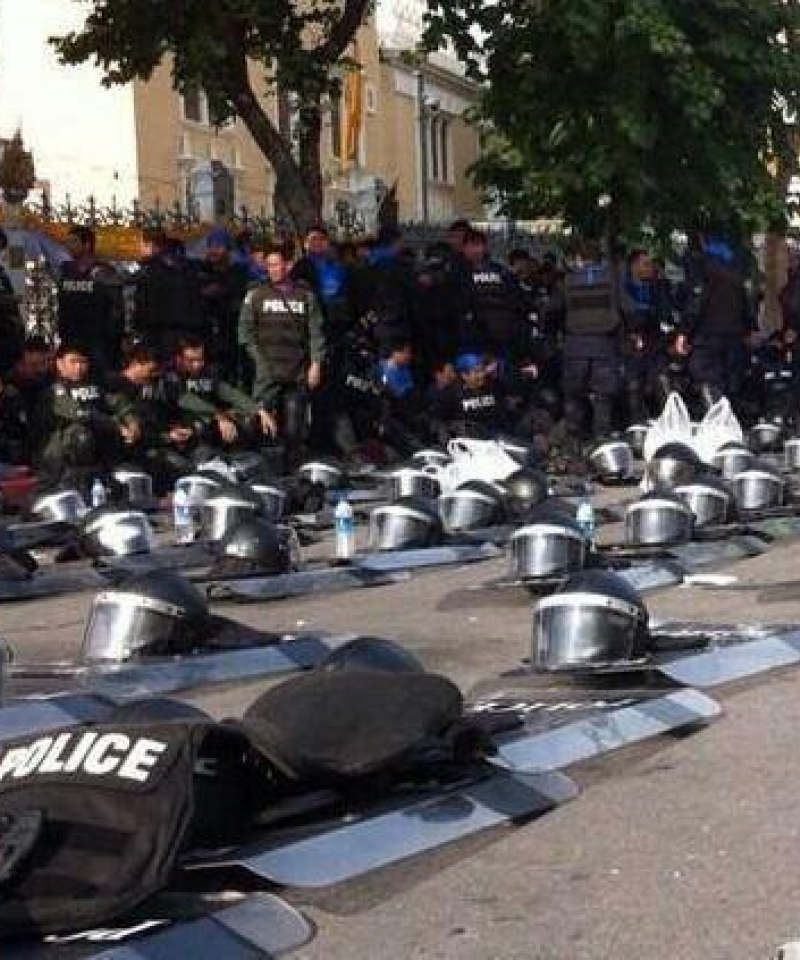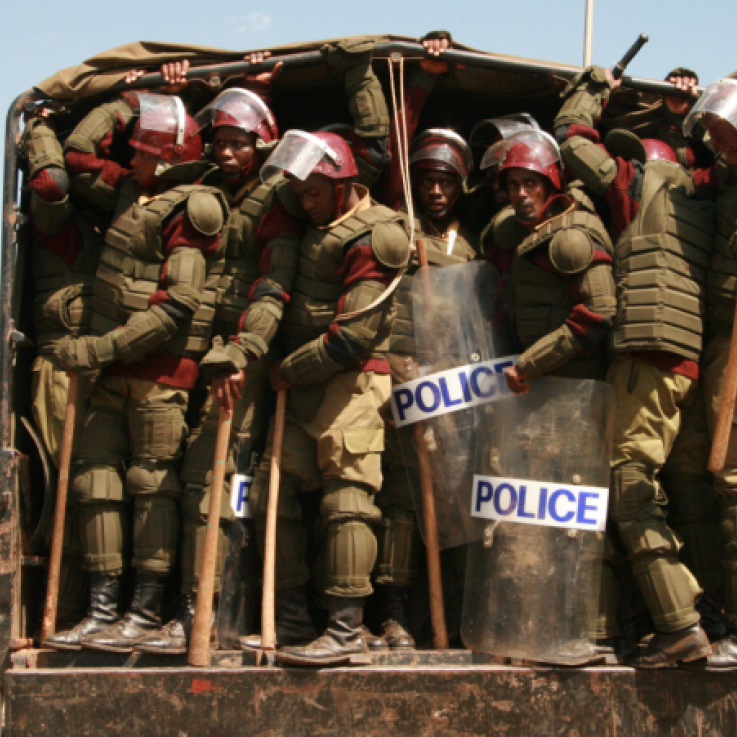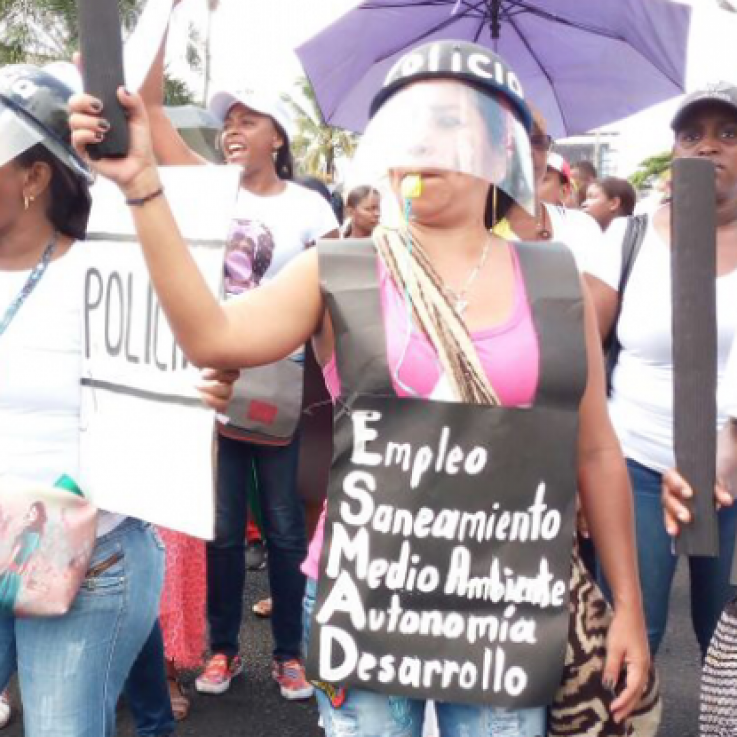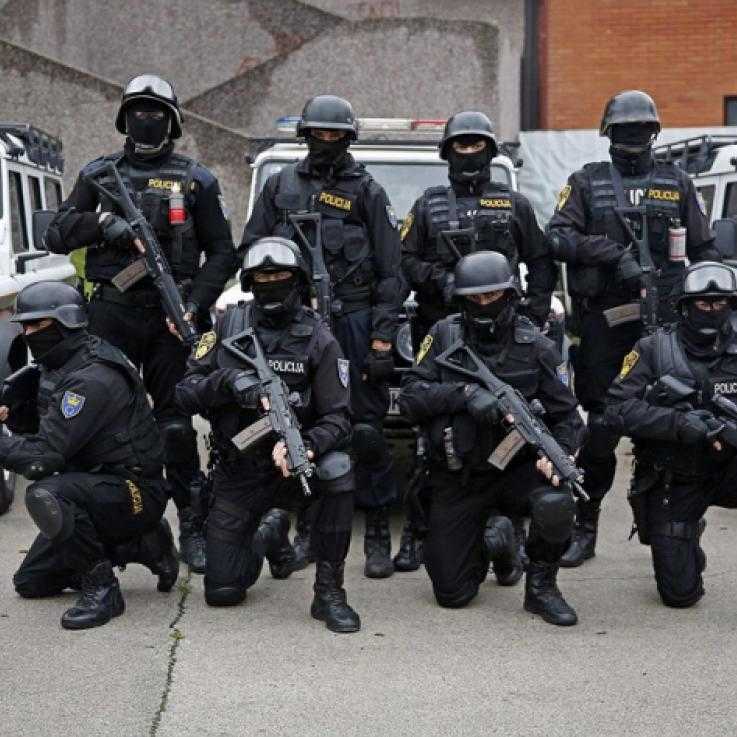Demilitarising policing

Whilst a clear shift towards militarised policing can be observed across the world, there exist numerous examples of attempts to demilitarise the police; often in response to the end of an armed conflict or the fall of an authoritarian regime. In most of these examples, militarised policing has tended to resurface in an adapted form.
Before the fall of the Indonesian dictator Suharto in 1998, the military and the police were one unit under one chain of command. After the fall of Suharto, the two institutions were separated and there were also moves to get the military out of politics. The ‘war on terror’ has stifled this process and police brutality is a common and growing problem with the Mobile Brigade Corps (armed paramilitary police) and Special Detachment 88 (US-armed counterinsurgency special forces police), both used in occupied West Papua against independence protesters, being of particular concern.
South African police were “retrained to ‘manage’ rather than ‘control’ crowds” when Apartheid ended in 1994 and were given new, non-military, ranks. However, military ranks were reintroduced into the police force in 2010 in response to high crime rates and training in “techniques described as ‘paramilitary’ and reliant on shows of force” has been conducted by the French police. In the Marikana massacre of 2012, heavily armed police shot dead 34 striking miners; “the BBC reported that weaponry available to police that day included a 40mm vehicle mounted machine gun” (Tabassi and Dey, 2016).
In Turkey, there has been a militarisation of policing in the context of the supposed demilitarisation of wider society. The police’s extrajudicial powers have been significantly expanded, appropriating the legacy of the 1980 military coup, in the name of eliminating the military’s power over politics. An example is the use of Rapid Action Units (Çevik Kuvvet) and Special Operations Teams (Özel Harekat Timleri), both of which were established following the military coup. The gendarmerie, formerly a branch of the armed forces responsible for local policing, was taken over by the Ministry for Interior Affairs following the failed coup attempt of July 2016.
In Colombia, there are also concerns about the militarisation of policing in a context of demilitarisation after the signing of peace accords between the government and the FARC (Fuerzas Armadas Revolucionarias de Colombia or Revolutionary Armed Forces of Colombia) on 24th November 2016. Since the peace accords were signed, over 100 leaders from different social movements have been assassinated. A new military doctrine called the Damascus Doctrine is being developed by the armed forces which consists of strengthening the armed forces to be the principal interlocutor with civil society and so the militaristic grip of the state.
The South Korean police force is currently undergoing a process of demilitarisation with the abolition of conscription to the police force as part of military service by 2023. Conscription was first introduced to the Combat Police unit of the police force in 1982 which had a mission “to ferret out North Korean spies and maintain public order” (Park, 2017). The Combat Police was disbanded in 2013 but the conscripts remained carrying out similar militaristic functions. A main role of police conscripts has been to confront protesters during political demonstrations. It remains to be seen what the outcome of this step towards demilitarisation will be and what its effects it will have on the wider police force.



